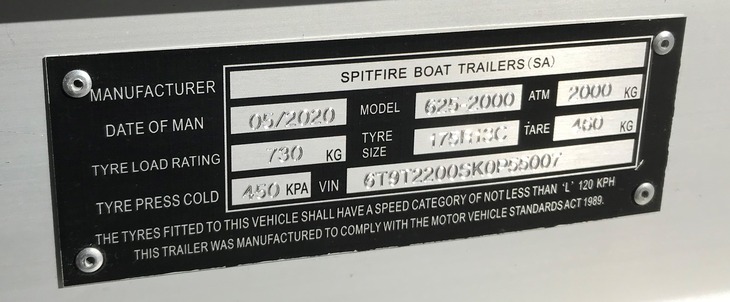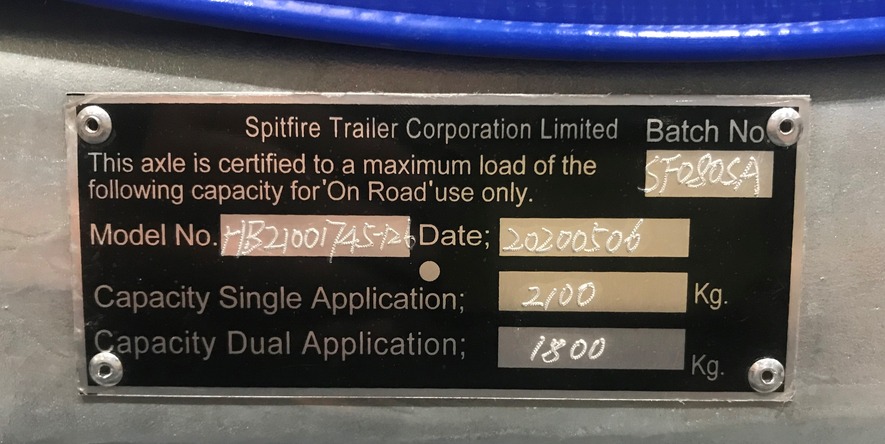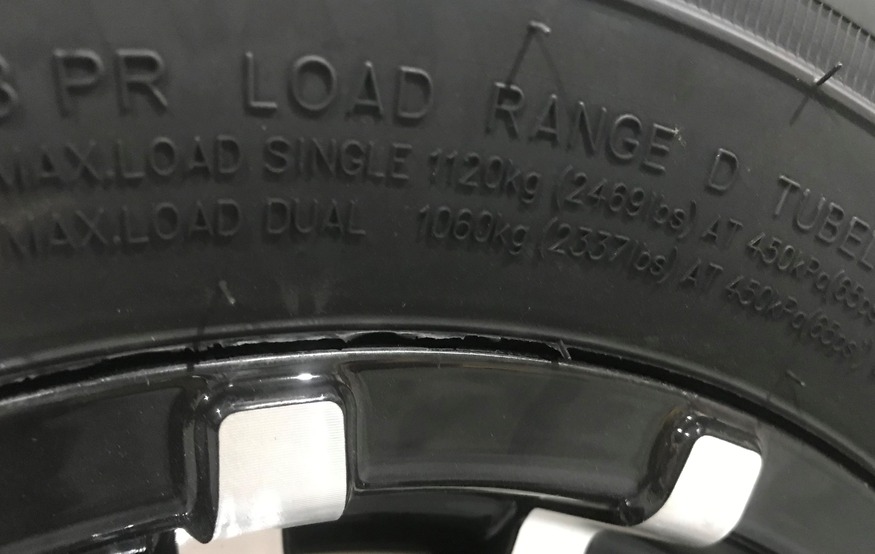Looking to buy a 2nd hand boat? What should I check in relation to the Trailer?
On too many occasions we hear of clients who have purchased a ‘new’ 2nd hand boat and are subsequently faced with unexpected trailer problems.
Trailers carry boats…. But they also carry the motor, fuel, accessories fitted to the boat, fishing gear, the esky… and sometimes the weekend camping gear too! It is very important that your trailer be properly rated for how you wish to load it.
Brake requirements
The total all-up weight of the trailer + everything else must be less than the total GTM or ATM allowed by the trailer manufacturer – and stamped on the VIN Plate. The main categories of weight and the requirement for brakes is as follows;
– Less than 750kg total weight…. Trailers do not need brakes
– Between 750kg and 2000kg… Trailers need brakes on two wheels
– Over 2000kg… trailers need brakes on all wheels, and the brakes must activate automatically if the trailer separates from the car.

Regardless of the VIN plate, salesman, or manufacturer’s information… for a 2nd hand boat, a weighbridge certificate will tell you the measured all-up trailer and boat weight – and this is the only definitive document you should rely on to confirm which weight category you belong to for compliance.
Each weight step costs significantly more than the previous step. For example… a 3000kg rated trailer of one size will cost approx. $3000 more than the same size rated for less than 2000kg. For this reason, the unaware buyer can often purchase a boat and trailer package that appears legal… but when they wish to use it as intended, the trailer will not carry the weight and therefore be illegal and non-compliant on the roads. They may simply wish to increase the motor size… and this can render the trailer non-compliant.
Strong TIP: When buying a boat and trailer… simply request the seller to provide a weighbridge certificate so you can see the actual total weight is of what you are buying.
Load ratings of chassis, axle, and tyres
The total carry weight capacity of a trailer is a function of 3 key attributes. In fact it is the LESSER of the following;
a) The rating of the axle
b) The load rating of the tyres
c) The design of the chassis
A buyer could be reasonably expected to assume that the trailer chassis is designed properly. If this is a home-made trailer then special caution must be taken to establish who designed it and on what criteria. All light trailers are required to have safety factors built into the design. For normal use this is usually 3 and for off-road use it is 5.
Next a buyer should check the VIN Plate for the stated load rating and then cross check the tyres for their load rating. Some boat owners like to reduce the height of the boat on the trailer and one way to do this is to fit smaller tyres. But smaller tyres can’t usually carry the same load. If you have a trailer VIN Plate capacity of 2000kg… but the total load rating of the tyres only adds up to 1500kg… then your trailer is not allowed to carry more than 1500kg. Buyer Beware!

Similarly… you may have an axle capacity of 2000kg… and a tyre load capacity of 2500kg… in this case your trailer capacity is the lesser value… ie 2000kg. Again.. Buyer Beware!

Strong TIP: Check that the load rating of the tyres is greater than the stated load capacity of the VIN plate
Trailer performance behind the car when towing;
It goes without saying that it is very important to take your new boat for a test drive on the water as well as on the road before buying it. On-road performance is critical for towing vehicle safety and also to safeguard other road users. While a good trailer will stick to the back of the car like glue to a blanket, a poorly performing trailer will cause the following effects;
– Sway and swerve around corners, and also while driving in windy conditions
– Jerking motion or tugging on the tow ball, even while travelling on straight and normal roads, together with significant side-swipe effect when passing large trucks
All the above conditions are easily checked and identified. Mostly these are caused by an incorrect tow ball weight. The weight of the trailer on the tow ball of the car should be 8 to 12 % of the total load being carried. Therefore a loaded 2000kg trailer should produce approx. 160kg to 200kg on the tow ball. If not, then perhaps the axles need to be adjusted on the trailer to change the centre of balance accordingly. From a buyer perspective… this can also be an indication that this was not the original trailer supplied with the boat when it new.
Strong TIP: Measure the weight of the trailer on the tow ball… use a tow ball scale
The other things to check are obvious… a buyer must be satisfied that the lights work, the suspension and chassis is serviceable, and all brakes are operating. There is one more check that is highly recommended… the bearings.
The best way to check bearings is to take the trailer for a drive for about 5km. Then, using a small infra-red thermometer… take the temperature at each wheel hub (a consistent spot on each wheel is fine).
If the bearings are OK you will likely find the temperatures to be similar. If there is a bearing needing replacement or other checks… its temperature will likely be elevated. Again… Buyer Beware!




















